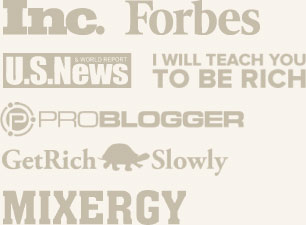The Best Way to Invest Your Money During An Economic Downturn
The fear is palpable. I read it in your emails and I see it in your Twitters. The stock market has plunged (as I write this, two days in a row) and your retirement money is getting sucked dry. If you own a house, it’s probably worth less than it was a few years ago. Finally, your debt payments are taking up a large amount of your monthly income. It’s enough to make your head spin!
Given that nearly every class of investment seems to be going down, what is the best way to invest your money (for the long and short term) to buck the trend? In this post, I break down how to invest your money during this downturn, based on how long your investment horizon is.
Long-Term: 10+ Years
The two most likely assets that you will want to hold on to long-term are your house and your retirement account. Let’s examine each of those in more detail:
Housing.
If you own a house: Make sure you are on a fixed-rate mortgage (preferably with a term length of 15 years or less), and that you can afford the payments for months even if you were to lose your job or income. If you are on an adjustable-rate mortgage, call your mortgage company and negotiate to get a fixed-rate mortgage at the lowest rate possible.
If you are on a mortgage and cannot afford the adjusted payments, or you have housing-related debt that will be untenable long-term, this is the time to drop all emotional pretense and admit that you cannot afford the house you are in. Whatever you do, do not pull money out of a retirement account or put money on a credit card to pay your house payment. Your house will be worth less next year than it is right now — there’s no point in throwing good money after bad.
Call your bank and immediately arrange a short sale of your house, and then rent for a few years and save up money. There’s nothing wrong with renting — especially if it frees up hundreds or thousands of dollars a month that you would otherwise be throwing down a drain. Even with a foreclosure or short sale on your record, you will be able to buy a house again later, when your cash position is better and houses are more affordable.
If you rent: Continue renting for at least another year, no matter where you are. I have heard some people say they are planning to buy a house because they are afraid they won’t be able to get a mortgage next year. Do not make one of the largest financial decisions of your life based on fear! If you plan to buy a house, you should be saving money every month toward that house…putting you in a stronger cash position. Also, every year for the next 3-5 years, you will have more cash and houses will be worth less — a win-win proposition. Your patience in continuing to rent will be rewarded.
401(k)/IRA accounts. If you’re investing for the long term, keep your money in an index fund. The stock market may go down short-term, but that means your money buys more. Eventually, the stock market will recover. If you plan to retire in the next few years, you need to adjust your 401(k) and IRA out of the stock market now and put that money into a safe haven such as bonds.
Intermediate-Term: 5-10 Years
Pay down all your credit cards. If you already have debt, especially credit card debt, it’s key to pay it down as soon as possible. Tally up everything you spend money on (I track my expenses to the penny every month.) Really look at those numbers. Where can you cut back?
You may be surprised at what you’re spending money on — I found my boyfriend and I were spending over $1500/month on food. We’ve cut that by 60% since then, and found we enjoy meals out more than we did previously, since it’s no longer a burden to decide where to eat. I also cut my spending on clothes by 80%, cut our cable bill by $57/month by downgrading to basic cable, canceled a business membership I wasn’t using, and changed to a different gym, saving me about $300/month. Overall, I pared my spending by nearly $1000/month, just by tracking what I was spending!
What did I do with the extra money? I paid off all my debt except for my car payment — which should be paid off next year.
Short-Term: 0-5 Years
Cash will be king over the next few years, and you will be able to buy assets as large as houses and as small as electronic gadgets at discount prices.
If you have no high-interest debt such as credit cards, there are a few approaches you can take. Gold recently hit a long-term buy signal, dropping below $850 an ounce on the day the second bailout passed. I noticed this and decided to take the plunge. I pulled money out of my savings account and invested in 10oz. of gold coins. If gold drops below $850 an ounce again, I would recommend picking some up. Gold is an excellent hedge when times are rough and fear rides high.
I plan to sell my gold when it hits $1500-$1700 an ounce, and invest the proceeds into housing. If you currently are in a positive cash flow situation, you can do something similar. There will be a time in a few years when houses make sense again as an investment. That time is not now, but you can put your cash in CDs, high-yield savings accounts, or government bonds and wait patiently for that time. (Stay tuned here, as I will be posting about real estate regularly.)
For you cash savers, ING Direct has a $25 bonus just for signing up for their high-yield savings account. It pays 3% interest at this time. I have one and would recommend it. You can set up auto-deposits to it from your regular checking account, which I would also recommend doing, so you won’t be tempted to spend that money.
You should have several months’ worth of living expenses set aside in a high-yield savings account in case you need cash.
I do not recommend the stock market for short-term investing, unless you are an options trader who enjoys volatility. I have traded options in the past and they are tricky. It’s an easy to lose a lot of money quickly. Only attempt day trading if you really know what you are doing. Ultimately, after spending a month day trading, and having some wins and some losses, I decided it wasn’t for me at this time.
Summary: The Best Way To Invest
Paying down debt with an interest rate higher than 8% will return you far larger amounts of money than pretty much any investment right now. Do that, and get your spending under control, first. Cash will become critically important over the next few years; do what you can now to make sure you have as much cash as possible sitting in a high-yield savings account, CDs, or government bonds.
The stock market is risky for short-term investments. For the short term, consider gold, and stockpile cash to prepare for an eventual investment in housing or other distressed assets at low prices in a few years. Keep your eye open for bargains, but don’t expect too many right now. Next year around this time, there will begin to be some good deals, but don’t spend all your money then, either, as the housing/commercial real estate contagion will continue through 2012-2015.
There will be many chances to get firesale prices on assets in the future, but you must have the cash position to be able to jump on them when you see them. Have patience and do not act when you see the first good deal. Asset prices on everything from real estate to art to wine will decline in real terms over the next few years.
Long-term, keep your existing retirement account in the stock market and continue investing in it now while stock prices are low.
Finally, don’t panic! Focus on what you can control. You can control your spending. You can start a business to make more money. My IRA, like many of yours, is invested in stocks and has fallen 30% this year. I am, however, not concerned, since my IRA is very long-term and I will have many more years to gain that money back. In the meantime, I am happy to stockpile cash, invest in gold below $850, invest in my new business, and patiently wait this crisis out.
“Don’t waste life in doubts and fears; spend yourself on the work before you, well assured that the right performance of this hour’s duties will be the best preparation for the hours and ages that will follow it.” –Ralph Waldo Emerson
Recommended Reading:
- Why You Don’t Save Money, Even Though You Know It’s The Right Thing To Do. Can’t resist buying stuff? I couldn’t either. Learn how I stopped spending myself into oblivion.
- When Will Housing Really Bottom? Charles Hugh Smith wrote the blog post I have had on my mind for months now. Short answer? Expect houses to keep going down in value through 2013 or perhaps even longer. Start preparing for this eventuality now.
- Three Business Ideas That Will Help You Thrive During A Recession. I started my last business in 2001, at the bottom of the dot-com bust. You, too, can start a business that will thrive during a recession. You just have to know which trends to look for.
- One Decision That Can Make Anyone A Millionaire. A decision any of us can make that will make us $1 million.


